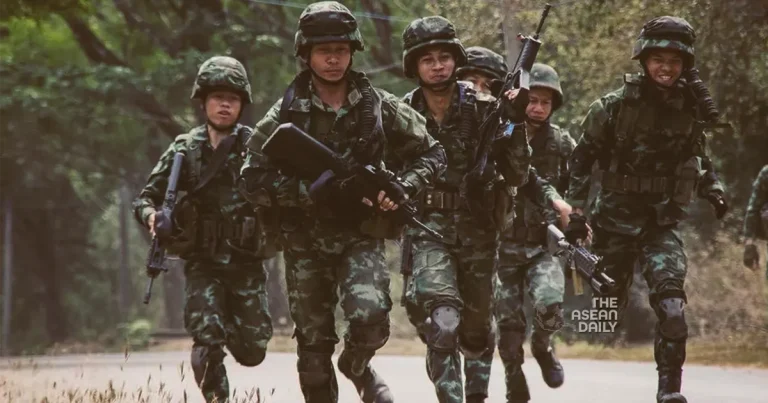6-2-2024 (BANGKOK) Thailand’s civilian-led government is confronting pressure to reduce the size and budget of the armed forces after nearly a decade of military rule, but analysts caution that this initiative is likely to encounter resistance from the country’s influential generals.
A proposed defense budget, which calls for increased spending, has sparked criticism from the opposition Move Forward Party and some Thai media outlets. They accuse the Pheu Thai Party, which heads the 5-month-old coalition government, of backtracking on its election promise to downsize Southeast Asia’s second-largest military, trailing only Vietnam.
The contentious budget, currently under parliamentary review and slated for potential approval by April, seeks 198.3 billion baht ($5.5 billion) in expenditure, reflecting a 2% rise from the previous year.
This marks another consecutive annual increase since the military coup in 2014, with the largest portion of the new spending designated for the army, which boasts an estimated 335,000 active-duty troops.
Opposition lawmakers have expressed apprehensions about the military’s readiness to accept reductions in funding and manpower.
“I question whether the armed forces are prepared to adapt to these changes,” remarked Move Forward lawmaker Akkarat Udomamnuay during January’s parliamentary budget scrutiny.
Military analysts anticipate resistance from the entrenched defense establishment against oversight by a civilian-led administration. “The military consistently resists attempts by elected governments to reform its structure,” noted Paul Chambers, a Thai national security expert at Naresuan University.
The military’s influence to expand its financial footprint surged following the 2014 putsch and a previous coup in 2006, Chambers added.
During the five-year junta rule from 2014 to 2019, the military’s share of the national budget inched up by 0.8 percentage points to 8.1%, according to Chambers.
“Moreover, there’s ‘carryover’ budgeting, allowing the Defense Ministry to utilise vague state funds not yet approved for specific purposes,” Chambers explained. “As a result, civilian oversight over the defense budget remains limited.”
Thailand has experienced 13 successful coups since transitioning from an absolute monarchy to a constitutional monarchy in 1932, creating a challenging dynamic for Defense Minister Sutin Klungsang, a veteran Pheu Thai politician.
Sutin’s appointment followed intricate negotiations, where a senior general with ties to the previous military regime was also considered for the role by an influential military faction.
Thai intelligence sources suggest that Pheu Thai’s selection of Sutin as defense chief symbolises the civilian facet of its administration.
“It’s a tough role for him because he knows the military will wield influence behind the scenes,” remarked one source. “He has been assigned two generals as advisers—both close to Gen. Prayuth.”
Sutin has urged patience in reining in the powerful military. “I’m not here to appease the military, but I need time and effective strategies,” he told parliament.
In addition to reducing the defense budget, Sutin faces the challenge of streamlining the top-heavy military, which reportedly boasts between 1,700 and 2,000 generals, compared to 880 flag officers in the U.S. Army.
A senior Pheu Thai politician acknowledged the irony of a civilian-led coalition partnering with Prayuth’s pro-military party. “We’ve been victims of military coups, but now we must engage with the military,” the politician remarked. “Our government’s tone will reflect this balance between civilians and the military.”




